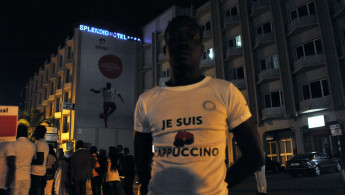New militant threat in West Africa from al-Qaeda
A video has emerged linked to the kidnapping of a Swiss woman in Mali this month by a suspected al-Qaeda militant group.
Al-Akhbar, a Mauritanian news agency, said they received a video purportedly from the Emirate of the Sahara group claiming responsibility for this month's kidnapping of Swiss woman Beatrice Stockly in Mali.
"We announce our responsibility for the kidnapping of this evangelising disbeliever who, through her work, has succeeded in driving large numbers of Muslim sons from Islam," a spokesman from the al-Qaeda group allegedly announced in the video.
The Mauritanian news agency told AFP they have no plans to distribute the video.
It is not the first time al-Akhbar has been in contact with al-Qaeda-linked groups.
During an interview with al-Akhbar leader of al-Qaeda Islamic Maghreb - al-Qaeda's North Africa branch - threatened allies of the Western "crusaders" in reference to Burkina Faso, Chad, Niger, Senegal and Togo.
Stockly has been kidnapped by extremist groups in Mali before.
In 2012 she was held by Ansar Dine Salafi extremists, when they captured Timbuktu in 2012 and began to destroy religious shrines in the ancient city.
She was freed as part of a prearranged deal between the group - believed to be linked to al-Qaeda - and Burkina Faso.
Stockly was among 24 hostages held by militant groups in the Sahel region, 20 of them held by al-Qaeda in the Islamic Maghreb and another Islamist group, the Movement for Unity and Jihad in West Africa.
Stockly returned to Timbuktu after her release, ignoring the pleas of the Swiss government to stay away from the unstable northern region of Mali.
Although the extremist group were flushed out of Timbuktu by French-backed forces, the militants continue to hold on to much of the north of the country.
From there they have staged some spectacular attacks.
In November, 20 people - 14 of them foreigners - were killed in an attack claimed by jihadi groups on a hotel in the capital Bamako.
Counter-insurgency
Neighbouring West African nations are attempting to boost security given the new threats from extremist groups.
"The alert is being taken very seriously," said a Senegalese security source told police after security operations led to 900 people being detained.
The situation is being taken particularly seriously in Dakar's Corniche district, which is home to many hotels, he said.
Hotel security has been stepped up after 30 people were killed earlier this month in a deadly attack on a top Burkina Faso hotel and a nearby restaurant in the capital Ouagadougou.
Bakary Sambe, researcher on religious radicalism at Gaston Berger University described Senegal as "an island of stability in an ocean of instability".
"It is increasingly a strategic retreat area for western organisations" and occupies a "privileged position" in the region, he told AFP
This has also made Senegal a lucrative target at extremist groups.
"[It is] a symbolic target, because in attacking Senegal, you hit many interests", he said.
Mohamed Fall Oumere, security expert and director of the Mauritanian newspaper La Tribune, said he expects Islamist attacks to extend westwards to countries such as Senegal, Ivory Coast and Mauritania.
They have largely been untouched due to a tight "security noose".
Analysts say that al-Qaeda is looking to further its influence in the region to send out a powerful message to France which has been militarily involved in the area.
It also wants to negate a threat from rival jihadi group the Islamic State group, which has a strong presence in Nigeria and recently extended attacks into neighbouring Cameroon.





 Follow the Middle East's top stories in English at The New Arab on Google News
Follow the Middle East's top stories in English at The New Arab on Google News


